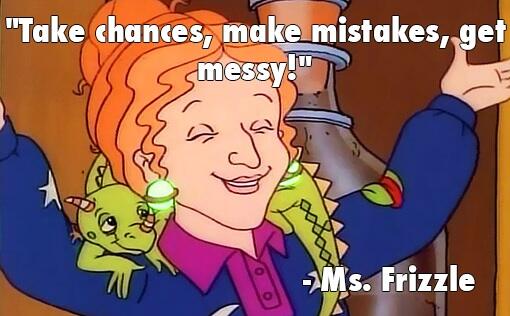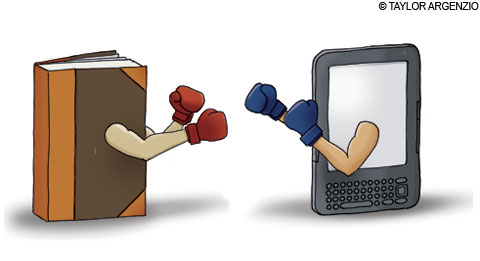Some
of us might be familiar with the great children’s show “The Magic School Bus”. May
her teaching methods might be questionable and the fact that the kids never had
to bring permission slips home to their parents when they went to outer space
or through a water treatment center she had the motto, “get messy, make
mistakes”. This was the first thing that jumped out to me when reading the
article by Moje.

For
me some of the most important lessons I have learned come from mistakes. Moje brings
up two points in the article in that teachers are doing wrong in the classroom
in regards to literacy. The first is that teachers are just inserting in
literacy techniques into a lesson without really making them unique to the
subject. The other point is that using new text should be encouraged instead of
insisting to use old methods that you might have grown up with. Using these new
texts it allows for critique and dissection of the text. Seeing these methods
used wrong can be eye opening as is seeing text that is wrong.

The
critiquing and dissection process targets the text in such a way that allows
the student to see if it is credible source, bias of the author, is the argument
sound or could have the argument made clearer or better supported. Dissecting
these ideas allow the students to have a better understanding of “the norms of
practice for producing and communicating knowledge in the disciplines. A way
for a science teacher use this is taking a fake science journal entry and
comparing it to a reputable report and if you have a good relationship with the
student you could take one of their reports and contrast to see how they
understand the areas norms.
It
will be interesting to see as we progress through the class to see what techniques
we can use that won’t be just insert KWL or a word wall into the lesson plan. I
don’t know if people already have some ideas that they will be using in their
classroom to encourage content literacy, but if you do I would love to hear
them.
I have thought about bringing in new information to my classroom. especially if I work in a school district that cannot afford a variety of materials for experiments. Due to youtube and other recent information share websites, it is now possible to show experiment simulations to a classroom to help them understand concepts when a text book cannot adequately explain something. Much of teaching can be assisted by visual aids and the internet is full of information that can be accessed and presented on screen to students when it is either too expensive or impossible to present live in a classroom. I would do more than just bring in visuals, but I would give the students variables in the experiment to consider and have them work out what changes might occur due to these variables. I would also ask them to try to find a similar or additional source of information relating to any project we performed in class. I want my students to use their literacy skills in order to learn how to find out more information by themselves and learn how to research. This way I am also teaching them how to teach themselves using the skills they have practiced.
ReplyDeletePaul,
ReplyDeleteI really liked your idea of comparing a fake research journal to a credible one. It might also be beneficial to find a research article with flaws in it to show real examples. I actually have had a research mentor in college who assigned this task to me and it proved to be very effective in helping me learn the proper components of a research study and journal article.
Rather than just assigning articles to incorporate more literacy in science classroom, having the entire class do close readings would prove to be more beneficial for learning. In the science classroom that I was previously observing, the teacher assigned some class readings and had a small science library for students to utilize; however, I rarely saw the class dissecting science language in these readings. Picking apart the language and structure can help students learn the science vocabulary and be able to identify common themes in science literature. For my futures students, I hope to get them to a point where they can point out common themes in science so that they have certain expectations before they read a science article. Having expectations can allow students to be critical thinkers within the specific discipline.